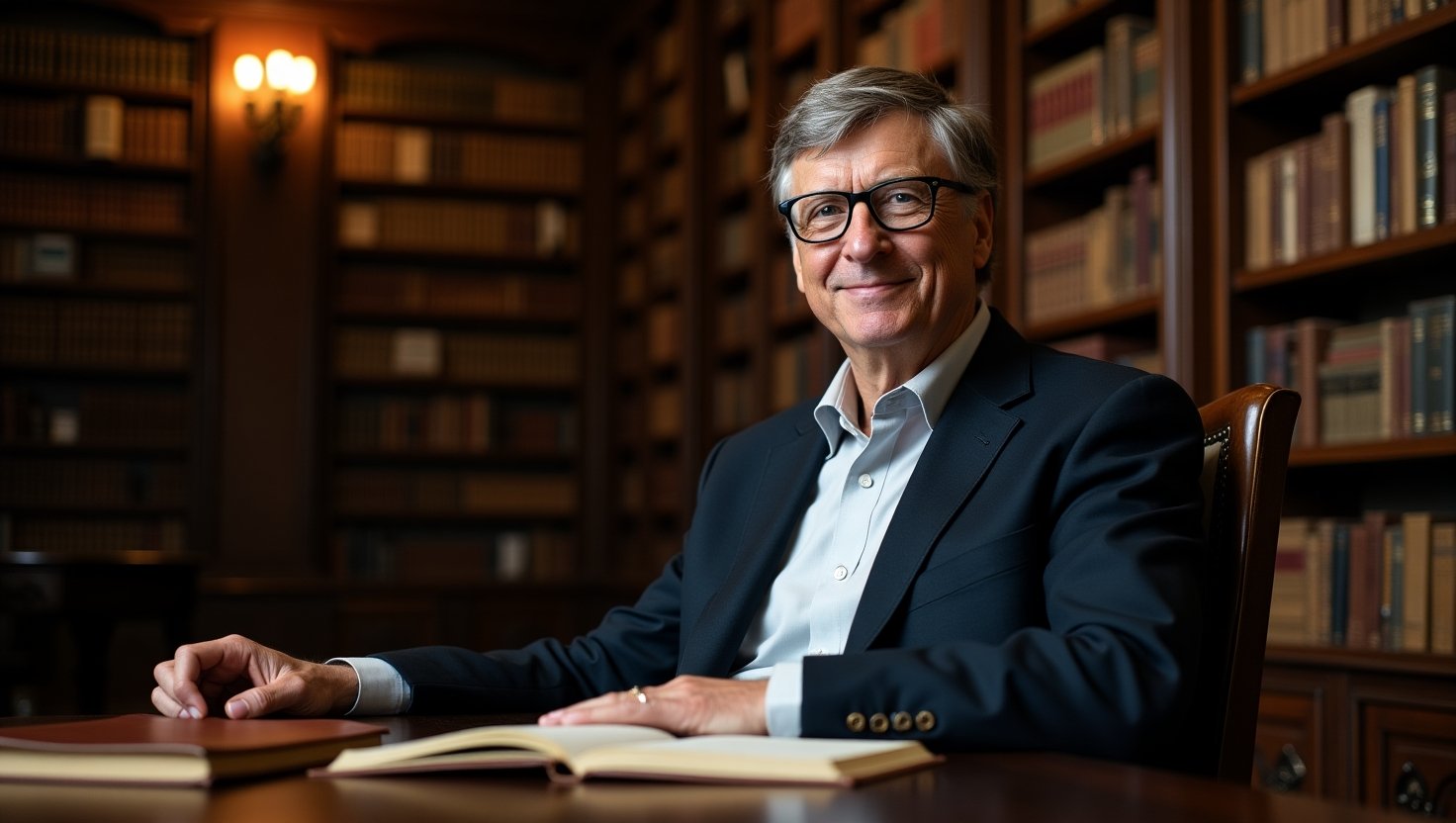Does Bill Gates Believe In God?
/Bill Gates is a figure that is known to the world for his massive success in getting Microsoft off the ground, his philanthropy, and his benefits to technological advancements. Though his professional achievements are widely praised, his views on religion and belief in God generate more interest. Gates’ view of faith is more nuanced as a logical thinker and scientist. Is it true that Bill Gates believes in God, or does he hold a strictly scientific and rational stance? So, here are his story and his thoughts about religion.
Bill Gates was born into a Christian family, Seattle, Washington. His mother Mary Gates was a devout Episcopalian, as was his father Bill Gates Sr. who was active in church activities. But the Gates family did not closely follow any specific faith, and spirituality was not central to their lives. Religion was not a major force in Gates’ life; he emerged as a brilliant computer scientist and entrepreneur unencumbered by a dogma of any one religion.
That upbringing helps account for his later, more cosmopolitan, agnostic views of faith and belief in God.
Bill Gates’ Views On God, Religion, And Spirituality And What Does He Believe?
Bill gates refers to himself as agnostic, which means that he is not saying that a greater power doesn't exist, but neither does he believe in a personal God. He has never shied away from the idea that even though he respects that religion means a lot to many people, he does not pertain to a specific religion. Gates believes science is our best path to the world, and he typically goes with reason and evidence, rather than religious dogma, in deciding how to act.
Despite being agnostic, Gates has previously indicated that he respects much of religious traditions' teachings including the lessons learned about living morally from figures like Jesus Christ. He did acknowledge that he finds merit in the basic principles of mercy, kindness and helping others that are a part of most religions (including Christianity). A rational humanist, Gates is an agnostic in the God sense not the moral compass sense of God, but the God sense of an interventionist deity who punishes and rewards based on human morality.
Also Check Out Our: Does Jeff Bezos Have Children?
Bill Gates’ Strong Commitment To Science And Rational Thought Over Religious Beliefs
Science has been a part of Bill Gates’ life from the very beginning. Gates, who is the co-founder of Microsoft and one of the world's leading philanthropists, has frequently spoken about the need for scientific innovation and evidence-informed solutions to make progress on the major challenges we are facing. His work on global health, education and climate change is rooted in logic, research and data. For Gates, viewing the world through the prism of science is the surest way forward, and he has frequently cited the need for technology to address some of humanity’s most vexing issues.
Gates has emphasized, in contrast to faith-based concepts of the cosmos, the value of inquiry, exploration and expansion of knowledge in solving problems like poverty, disease and environmental degradation. His approach to religion is built around the idea that, for him, science offers the best way to enhance human lives, so he believes scientific reasoning ought to be applied to every aspect of existence, but particularly those that affect society.
Does Bill Gates Attend Religious Services Or Engage In Religious Practices?
He doesn’t go to church or to anything else. He has said that he does not think he needs organized religion to find meaning in his life and maintains he derives meaning from his actions and work. And those principles aren’t too narrowly defined or dictated by religious dogma, but rather derived from humanism and empathy, or logic, Gates argues.
While Gates does not consider himself religious, he sees the role of religion in many people’s lives, especially its function as galvanizer and organizer of community, which can also provide people with community, support, a framework for living a moral life. He has been vocal about admiring those whose beliefs spur them to do good in the world, even when he does not share those beliefs.
Also Check Out Our: How Did Jeff Bezos Become Successful?
Bill Gates’ Philanthropy And Its Connection To His Views On Faith And Morality
Gates’ contribution to charity through his Bill & Melinda Gates Foundation reflects a position of moral duty, even though he is an agnostic, to improve the world. The foundation centers on solutions to health, poverty and education, and Gates has spent a large part of his wealth on those challenges.
It is not a religious philosophy based charity but rather born from the moral imperative of such a philanthropic act taking place at burial. His land and agape love approach, which has left so many of those who are deeply religious and who experience the world in ethnic or nationalistic or religious paradigm, is one which has all the social facets of a humanistic identity perspective. In this respect, Gates’s philanthropy is in line with the moral teaching of many religions even if that bandwagon doesn’t have faith in God as its base.
Also Check Out Our: Is Jeff Bezos An Engineer?
How Bill Gates’ Views On Faith Influence His Public Persona And Global Influence
Gates's agnosticism is partly responsible for his public image as a rational non-instrumentalist thinker. His views on religion have been hotly debated, since most people believe that factors including success, wealth, and even leadership can rarely be achieved without a strong religious foundation. Atheism has always been seen as a non-conformist status, and Gates' openness about not believing in a personal deity can also be interpreted as a challenge to the intersection of theology, science and ethics.
Some see Gates’ agnostic approach as a refreshing model of intellectual honesty, while others might wonder how his position on faith impacts his decision-making on issues such as global health and technology. Just the same, Gates does remain a powerful man whose positive influence on our world, and who his legacy will be for generations to come, is not limited by any one faith or religious set of beliefs.
Maria's Green Cleaning offers quality cleaning services for homes and offices across Chicago with a focus on eco-friendliness your clients and family can be proud of, regardless of background or belief.
How Will Bill Gates' Views On Faith And Religion Influence His Long-Term Legacy And Impact On The World?
Gates has not said he will not end up in heaven, I am sure his legacy will not depend on his religion, but on his breakthroughs in technology, with health care or education. His widespread philanthropic activity, which has helped millions of people globally, has been acknowledged by all for combating some of the largest global problems.
Gates’ agnostic beliefs aren’t likely to directly influence the substance of his work, but they provide an essential context for understanding his approach to problems. He was a man who had intentionally set aside all means of finding true understanding through religious values to use science and data in order to make the world around him a better place. Whether Gates is a God believer or not, his legacy is in his valuation of his actions, his intellectual rigor and the commitment to use his substantial resources to help humanity to be at its utmost.






